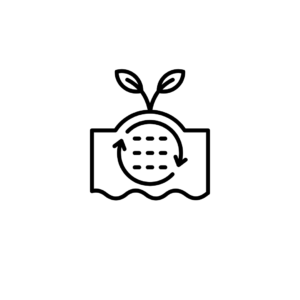Description
An Advanced Diploma in Aesthetics & Beauty Therapy with a focus on Facilities and Hygiene Management is designed to equip students with the knowledge and skills needed to excel in the beauty and wellness industry. This program combines principles of aesthetics and beauty therapy with essential management practices related to hygiene and facility operations, ensuring a safe and hygienic environment for clients.
Course Details:
Duration: Generally 1 to 2 years, depending on the institution and program structure.
Eligibility: A high school diploma or equivalent is typically required; some institutions may prefer candidates with prior experience or training in beauty therapy.
Mode of Study: Offered in full-time, part-time, or online formats, integrating practical training with theoretical study.
Curriculum:
The curriculum for an Advanced Diploma in Aesthetics & Beauty Therapy with a focus on Facilities and Hygiene Management typically includes the following key components:
1. Foundations of Aesthetics and Beauty Therapy
Skin Anatomy and Physiology: Understanding skin types, conditions, and the anatomy of the skin.
Beauty Therapy Techniques: Knowledge of various beauty treatments including facials, waxing, manicure and pedicure, and makeup artistry.
2. Advanced Aesthetic Procedures
Advanced Skincare Treatments: Techniques for chemical peels, microdermabrasion, and other advanced treatments.
Anti-aging Treatments: Understanding of treatments aimed at improving skin elasticity and reducing signs of aging.
3. Hygiene and Infection Control
Hygiene Standards: Important standards and practices for maintaining hygiene in beauty therapy and aesthetic treatments.
Infection Control Procedures: Techniques for preventing infection and cross-contamination in a beauty treatment setting.
4. Facility Management in Aesthetics
Setting Up a Beauty Facility: Best practices for designing and organizing a beauty therapy workspace to ensure efficiency and client comfort.
Health and Safety Regulations: Knowledge of health legislation and regulations affecting beauty therapy facilities.
5. Client Consultation and Care
Consultation Techniques: Skills for effectively assessing client needs, preferences, and contraindications for treatments.
Aftercare Advice: Providing clients with aftercare instructions and recommendations for maintaining results.
6. Business Management in Beauty Therapy
Basic Business Principles: Understanding the fundamentals of running a beauty therapy business, including marketing and customer service.
Financial Management: Basics of budgeting, pricing treatments, and managing financial records for a salon or spa.
7. Marketing and Promotion
Marketing Strategies: Techniques for promoting beauty services and treatments, including social media marketing, promotions, and building a client base.
Customer Relationship Management: Skills for fostering strong relationships with clients and enhancing loyalty.
8. Regulatory Compliance and Ethics in Beauty Therapy
Professional Ethics: Understanding the legal and ethical responsibilities of beauty therapists.
Regulatory Compliance: Familiarity with regulations regarding product safety, employee rights, and customer care in the beauty industry.
9. Practical Experience
Hands-on Training: Opportunities for practice in a supervised environment, applying learned techniques in real-life scenarios, and working with clients.
Work Placement: Serving an internship or work placement in a beauty therapy facility for practical experience.
Assessment:
Assessment methods for this program may include:
Written Examinations: Testing theoretical knowledge of beauty therapy practices and hygiene management.
Practical Assessments: Demonstrating skills in various aesthetic treatments and the management of hygiene protocols.
Projects and Presentations: Engaging in business planning projects or case studies related to facility management and marketing strategies.
Career Opportunities:
Graduates of an Advanced Diploma in Aesthetics & Beauty Therapy with a focus on Facilities and Hygiene Management can pursue a variety of roles, including:
Beauty Therapist: Providing aesthetic treatments and beauty services to clients.
Spa Manager: Overseeing the operations of a spa or beauty facility, including staff management and client relations.
Hygiene Consultant: Advising beauty establishments on hygiene standards and infection control practices.
Skincare Specialist: Focusing on advanced skincare treatments and client education on skincare regimens.
Salon Owner/Manager: Managing or owning a beauty therapy business, responsible for all aspects of operations.
This advanced diploma program prepares students for a successful career in aesthetics and beauty therapy, emphasizing both technical skills and management practices to ensure a high standard of service and hygiene in the industry. If you have further questions or would like more specific information, feel free to ask!









